Morning anxiety can feel like a storm cloud that follows you throughout the day. But you don’t have to let it rain on your parade. By understanding the roots of morning anxiety and adopting a few simple, natural strategies, you can start your day feeling more grounded and at ease.
Whether it's through breathing exercises, herbal support, or adjusting your morning routine, there are natural holistic approaches that can help you find calm and make your mornings a time of renewal instead of stress.
What Is Morning Anxiety?
Morning anxiety refers to the experience of waking up with feelings of dread, stress, worry, or unease, often accompanied by physical symptoms like a racing heart rate, tight chest, or racing thoughts.
One of the main factors behind morning anxiety is the body’s natural cortisol cycle. Cortisol, known as the “stress hormone,” is released by the adrenal glands and follows a natural rhythm throughout the day, typically peaking in the early morning to help wake you up. This is known as the cortisol awakening response (CAR).
However, for those prone to anxiety, this morning cortisol surge can trigger heightened feelings of anxiety.
Common Symptoms of Morning Anxiety
- Racing heartbeat: rapid or irregular heart rate upon waking
- Shortness of breath: difficulty taking deep breaths or feeling like it’s hard to breathe
- Restless thoughts: a flood of anxious or negative thoughts as soon as you wake up
- Tightness in the chest: a sensation of pressure or discomfort in the chest area
- Muscle tension: feeling tense or stiff in the shoulders, neck, or back
- Sweating: unexplained sweating, especially upon waking up
- Stomach discomfort: nausea, churning stomach, or loss of appetite in the morning
- Difficulty concentrating: trouble focusing on tasks or feeling easily overwhelmed by daily activities
- Fatigue: waking up feeling tired despite a full night's sleep
- Irritability: feeling unusually irritable or on edge as the day begins
Reasons You Wake Up With Anxiety
Understanding why you wake up with anxiety is the first step toward finding relief—these common causes can shed light on what might be triggering those uneasy mornings.
Stress
Stress about work deadlines, major life changes, or personal responsibilities can cause you to ruminate on these issues during the night, leaving you feeling on edge as soon as you open your eyes.
High levels of stress can cause your body to produce more cortisol, the hormone responsible for regulating your sleep-wake cycle, leading to a heightened sense of anxiety when you wake up, per a June 2012 study in the journal Sleep Disorders.
Substance Abuse
The use of substances like alcohol, caffeine, or certain prescription medications can contribute to morning anxiety.
While alcohol might initially seem to help with sleep, it actually disrupts your sleep cycle, leading to lighter, less restorative sleep and a tendency to wake up feeling anxious. And, especially when consumed late in the day, caffeine’s side effects can linger in your system and make it difficult to achieve deep, restful sleep, leaving you feeling jittery or on edge when you wake up.
Additionally, the World Health Organization notes that withdrawal symptoms from certain drugs or medications, including prescription drugs, can also contribute to heightened anxiety upon waking, as the body struggles to adjust to the absence of the substance.
Health Conditions
Certain health conditions, such as thyroid imbalances, chronic pain, and hormonal changes, can trigger morning anxiety.
Hyperthyroidism, for example, can cause an overproduction of thyroid hormones, leading to symptoms like restlessness, rapid heartbeat, and heightened anxiety, especially in the morning, according to the Mayo Clinic. Additionally, conditions that cause chronic pain can make it difficult to achieve restorative sleep, resulting in waking up with both physical discomfort and a sense of anxiety.
According to the American Psychological Association, hormonal fluctuations, such as those experienced during menopause or due to adrenal fatigue, can also affect cortisol levels, contributing to increased anxiety in the mornings.
Dysautonomic disorders, which affect the autonomic nervous system (ANS), such as POTS or MSA, can cause morning anxiety due to disruptions in the body’s regulation of essential functions such as heart rate, blood pressure, digestion, and stress hormone release.
Mental Health Problems
Symptoms of morning anxiety are often linked to broader mental health conditions, such as generalized anxiety disorder (GAD), depression, and panic disorder. People with GAD may experience persistent, excessive worry that spills into the early hours, leading to an uneasy feeling as soon as they wake up, according to Medical News Today.
Depression can also make mornings especially difficult, as feelings of dread, hopelessness, and low energy are often more pronounced at the start of the day. Additionally, panic disorder can cause individuals to experience morning panic attacks, where they wake up suddenly with a racing heart and a sense of impending doom.
Relationship Issues
Unresolved conflicts and worries about the future of a relationship often remain in the back of your mind, resurfacing as anxious thoughts in the early morning when your mind is less distracted. For example, a disagreement with a partner the night before or feeling unsupported in a relationship can lead to a restless night and a heavy sense of anxiety when you wake up.
Financial Stress
Worries about money are a common cause of morning anxiety, as concerns about bills, debt, or job security can weigh heavily on the mind. Research from the American Psychological Association highlights that financial stress is one of the most common sources of anxiety, impacting sleep quality and contributing to a sense of dread upon waking.
What to Do When You Wake Up Feeling Anxious
Waking up with anxiety can feel overwhelming, but there are simple, effective strategies you can use to calm your mind and start your day on a more peaceful note.
Diet
What you eat can play a big role in managing morning anxiety. And by adhering to Dr. Sebi’s Nutrition Guide, you’ll be providing your body with the nutrients it needs to feel balanced and calm.
Specifically, incorporate foods like Brazil nuts and walnuts into your diet. Brazil nuts are rich in selenium, which has been shown to support mood and reduce inflammation, while walnuts provide magnesium, a mineral known to help relax the nervous system.
Sipping on a cup of chamomile tea (like Dr. Sebi’s Stress Relief Tea) can further ease anxious feelings, as it contains apigenin, a compound that promotes relaxation. On the other hand, it’s best to avoid alcohol and caffeine, as both can disrupt your sleep and increase anxiety levels, making it harder to wake up feeling calm and refreshed.
Meditation and Breathing
Meditation and deep breathing exercises can significantly reduce morning anxiety by calming the nervous system and promoting mindfulness. Techniques like diaphragmatic breathing—where you inhale deeply through your nose, allowing your belly to rise, then exhale slowly—can lower cortisol levels and induce a state of relaxation.
A May 2011 review in the Journal of Consulting and Clinical Psychology found that mindfulness meditation can reduce symptoms of anxiety. To incorporate this into your morning routine, try starting your day with a 5-minute guided meditation or practice alternate-nostril breathing, which helps balance the mind and body.
Limit Screen Time
Limiting screen time, especially in the morning, can help reduce anxiety by preventing overstimulation and allowing your mind to wake up more gently. Exposure to screens, whether it’s scrolling through social media or checking emails, can trigger a rush of stress responses as your brain is bombarded with information.
Instead, try starting your morning with a calming ritual, like reading a few pages of a book, taking a short walk outside, or listening to calming music. Creating a screen-free period for the first 30 minutes after waking up can help set a more peaceful tone for your day.
Consistent Sleep Schedule
A consistent sleep schedule is crucial for managing morning anxiety, as it helps regulate your body’s natural circadian rhythms and stabilizes hormone levels. When you go to bed and wake up at the same time each day, your body learns when to expect sleep, which can improve the quality of your rest and reduce the likelihood of waking up with anxious thoughts.
According to the National Sleep Foundation, maintaining a regular sleep routine can enhance sleep efficiency, leading to fewer night-time awakenings and a more restful morning. For best results, try setting an alarm for both bedtime and wake-up time, even on weekends, to keep your internal clock balanced.
Exercise and Yoga
Starting your day with a few sun salutations or a quick walk can make a noticeable difference in how you feel throughout the day. Physical activity helps increase blood flow to the brain, releasing endorphins, reducing stress hormones like cortisol, improving mood, and promoting a sense of well-being.
A March 2023 study in Frontiers in Psychology found that even moderate exercise, such as a 20-minute walk or gentle stretching, can significantly lower symptoms of anxiety. Yoga is particularly effective, with poses like child’s pose or cat-cow helping to release tension in the body and improve focus.
Journal
Journaling is an effective tool for managing morning anxiety, as it allows you to process and release your thoughts before they take over your day, according to an October 2018 study in JMIR Mental Health.
You can try starting a gratitude journal, where you list three things you’re thankful for each morning, or use a blank journal to free-write whatever is on your mind. Or try a stream-of-consciousness “brain dump,” where you write down everything that you’re thinking as you’re thinking it. This simple practice can help clear mental clutter and create a sense of calm.
Therapy
Seeking therapy—whether through in-person sessions or online platforms—can be a valuable step for those experiencing persistent morning anxiety, providing personalized strategies to address the root causes of stress. It can also provide a space to explore underlying issues like past trauma, relationship challenges, or chronic stress.
Cognitive behavioral therapy (CBT), for example, has been shown to be highly effective in reducing anxiety by helping individuals challenge and change unhelpful thought patterns, according to an October 2014 review in The Lancet Psychiatry.
Supplements
Certain supplements (like Dr. Sebi’s Banju) can help ease morning anxiety by promoting relaxation and supporting the nervous system. Natural options like Sea Moss which is rich in magnesium help regulate stress responses, and valerian root, which promotes a sense of calm without causing drowsiness, making them suitable for morning use.
When to Talk to a Professional
If morning anxiety persists despite lifestyle changes or begins to interfere with your daily activities and quality of life, it may be time to see a doctor or mental health professional. Or, seek immediate medical attention if you experience severe physical symptoms like chest pain, shortness of breath, or frequent panic attacks, as these could indicate a more serious condition.
It’s important to work with a healthcare provider to find the right regimen for you.

































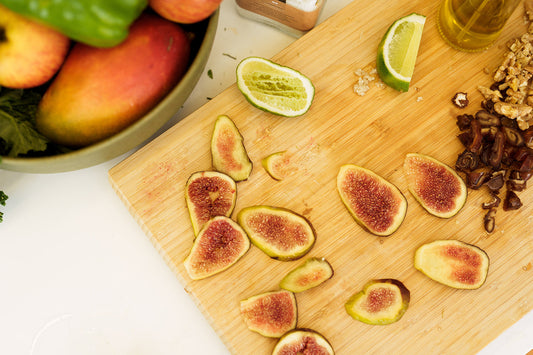

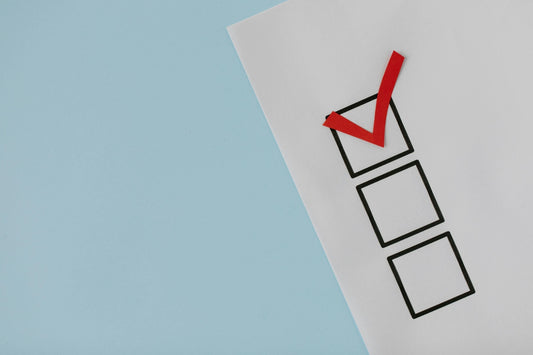

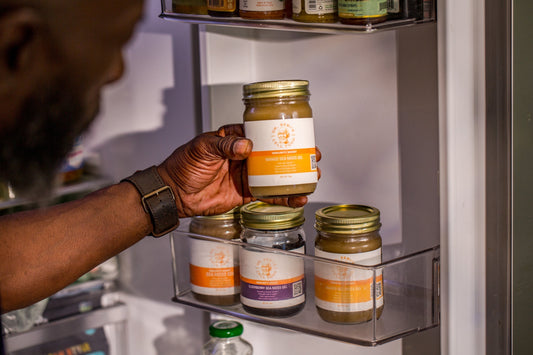


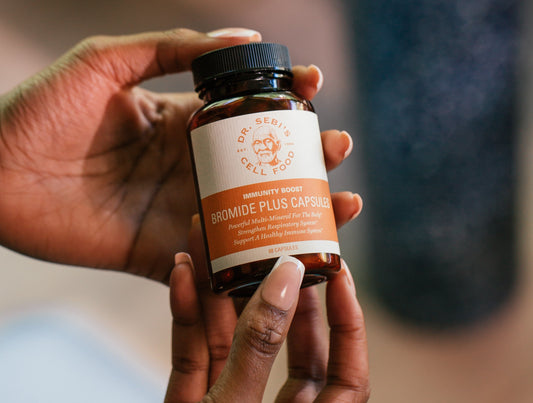



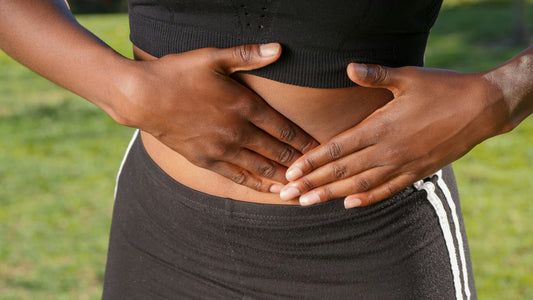
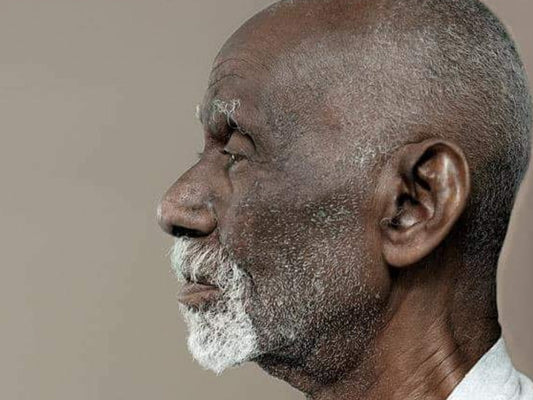


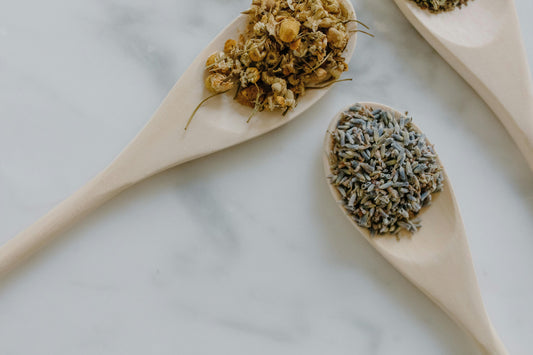


1 comment
Blood pressure